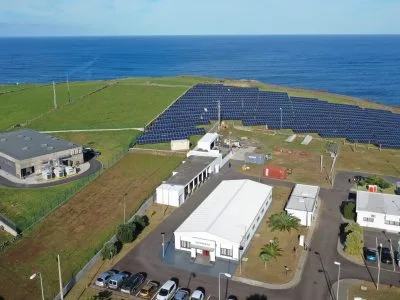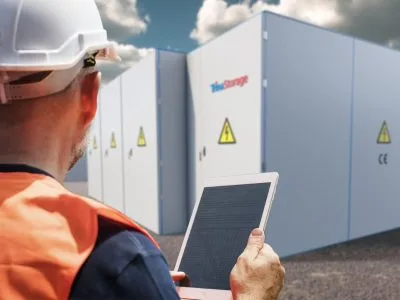Why does Elon Musk drive energy storage forward so much faster than his competitors?
Elon Musk has won his $50 million battery bet — Tesla has completed a 100 MW, 129 MWh battery energy storage facility in South Australia in record time. During a Twitter exchange in March with Australian billionaire Mike Cannon-Brookes, Musk dramatically stated,“Tesla will get the system installed and working 100 days from contract signature or it is free.”
As it happens, this already ambitious project was completed in an even shorter timescale. With the energy storage installation completed just under two months from the contract signing, the system is expected to go into operation in December after some days of testing. This is now the largest (in MW rating) grid-connected battery installation in the world.
So what factor does Elon Musk have that drives him to take on and complete these ambitious projects, far ahead of competitors in the sphere?
A key factor is that Musk is working to achieve a greater goal than profit. In an interview, he stated: “[About Tesla] I started off the shareholder letter saying the profits are not our primary goal. And then I got a little bit of — some of the board members who question that statement. And I was like, well it’s true, you know.” Long-term, saving-the-world goals don’t typically coincide with quarterly returns and stable share prices. Musk has shown he’s willing to sacrifice these metrics in pursuit of his prize.

Source: Maxpixel
Musk’s approach to risk-taking has been well-publicised. Known for all-in bets on his companies and himself, he has almost gone broke several times. A stark reminder that while great risks bring great rewards — but for every Tesla or SpaceX, how many thousands of companies have made similar risks and crashed out of the market?
A willingness to take risks
While Elon Musk has shown a willingness to take dramatic risks, it should be noted that the U.S. in general and the California/Silicon Valley bubble in particular are a special environment. While regulatory and technical challenges are still encountered, it is an environment that both encourages and rewards bold risk-taking. Musk, knowing the United States has been the homeland for scores of pioneering technical innovations, was fixated on getting there as a teenager. He was barely an adult when he managed it — via a transfer to the University of Pennsylvania.
Many thousands of words have been penned by major publications discussing Elon Musk’s prodigious work ethic, his intelligence and his leadership qualities — qualities that drive his employees to push through hundred hour weeks. But does that mean that companies without a Musk at the helm can’t drive progress in energy storage?
Others in the sector could do well to focus on energy storage being essential to our future environment, rather than just a potential source of profit. There are lessons to be learned from Musk’s willingness to take risks, to make bold moves and to bet on himself. It’s not even necessary to risk as much — by taking advantage of the path laid out by Musk’s trailblazing actions, energy storage early movers can take more calculated risks but still move forward.
Tesla’s has no shortage of dizzying highs — such as building the world’s largest energy storage facility in record time — but continues to be plagued by production bottlenecks. We know the demand for energy storage is there. There are opportunities to take advantage of slow production, for those who are willing to take the risk.
If you want to know more about this and other topics directly from end users of energy storage technologies join us at one of these annual events: The Energy Storage World Forum (Grid Scale Applications), or The Residential Energy Storage Forum, or one of our Training Courses.




